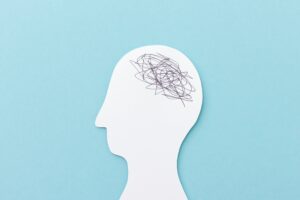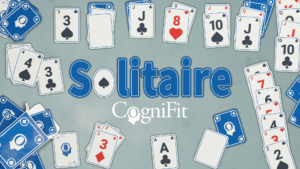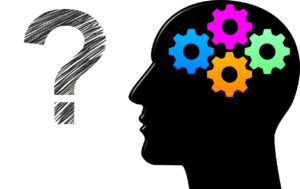
Music as Medicine: New Study Shows Listening to Music Can Ease Surgery Recovery
In a groundbreaking study, researchers have found that listening to music after surgery can significantly reduce pain, anxiety, and heart rate, offering a simple yet powerful tool to support patient recovery. This study, discussed in Neuroscience News and presented at the American College of Surgeons Clinical Congress 2024, draws on findings from 35 studies and reveals that music therapy may help patients need less pain medication and experience greater comfort in the critical hours following surgery. Here’s how music could soon become a staple in recovery rooms worldwide.

Background and Research Overview
The new research was spearheaded by a team from the California Northstate University College of Medicine in Elk Grove, California, led by Dr. Eldo Frezza, a professor of surgery, with contributions from third-year medical student Shehzaib Raees. To form a basis for their analysis, the team began with a pool of 3,736 studies, eventually narrowing it down to 35 peer-reviewed studies that provided robust data on patient outcomes such as pain levels, anxiety, heart rate, and opioid use.
The Need for Post-Surgical Pain Relief
Pain relief and patient comfort post-surgery are crucial for optimal recovery, as pain can lead to physical complications and increased stress. Typically, pain management has relied on medications, particularly opioids, which are effective but come with risks, including addiction and adverse side effects. Given the opioid crisis, this study’s exploration of music as a therapeutic option is both timely and relevant.
How the Study Was Conducted
Details on Methodology and Participants
The 35 studies included in this meta-analysis all explored the effect of listening to music on post-surgery patients. The studies involved a diverse group of participants who, after undergoing surgery, listened to music either through headphones or speakers during their recovery periods. The types of music varied based on patient preference and availability.
Data Collection and Analysis
The study authors focused on measuring key indicators of recovery, including:
- Pain levels, assessed using self-reported scales such as the Numeric Rating Scale and Visual Analog Scale.
- Anxiety, measured through the State-Trait Anxiety Inventory, which assesses levels on an 80-point scale.
- Heart rate and opioid use, both of which directly impact recovery speed and patient safety.
What Makes This Study Stand Out?
Innovative Approach: Music as a Passive Therapy
This research is among the first to demonstrate the potential benefits of music in post-operative recovery across such a large dataset. While other studies have explored music’s role in mental health and anxiety reduction, this is the first to assess its impact in post-surgical recovery using a detailed analysis of physical and mental health metrics.
The study is unique in its focus on music as a “passive therapy.” Listening to music is an effortless activity for patients, making it ideal in a post-operative setting. As Dr. Frezza noted, music provides an easy and accessible way for patients to feel a sense of familiarity and comfort during a vulnerable time.
Key Findings of the Study
1. Pain Reduction: Patients who listened to music reported a 19% reduction in pain the day following surgery. This was determined through patient self-assessments, with many patients expressing that they perceived their pain to be less severe. This finding indicates that music therapy could help patients avoid higher doses of pain medication.
2. Reduced Anxiety Levels: Anxiety was reduced by 3% among patients who listened to music post-surgery, based on the State-Trait Anxiety Inventory. Lower anxiety levels are vital for recovery, as they contribute to improved sleep quality, reduce stress-related complications, and increase overall patient comfort.
3. Less Dependence on Opioids: In a particularly noteworthy finding, patients who listened to music needed significantly less morphine on the first day after surgery—an average of 0.758 mg compared to 1.654 mg for those who did not. This reduction could have far-reaching implications, given the risks associated with opioid medications.
4. Improved Heart Rate Control: The study found that patients listening to music had an average heart rate reduction of 4.5 beats per minute compared to those who didn’t. Lower heart rates after surgery contribute to better circulation and reduced risks of abnormal heart rhythms, promoting faster healing in surgical sites.
5. Cortisol Reduction: Although not directly measured in this analysis, researchers speculate that listening to music may reduce cortisol, a stress hormone known to delay healing. This hypothesis aligns with past research indicating that music can reduce cortisol in stressful environments, suggesting that music could play a similar role in post-surgical recovery.
The Broader Significance of the Study
Implications for Science and Medicine: The study’s findings have the potential to influence future practices in both hospital and clinical settings. Introducing music as a recovery aid could enhance existing pain management practices, reduce opioid dependency, and offer a new way to improve patient experiences.
Potential Benefits in Education and Society: This study could encourage broader education on non-pharmaceutical pain management options, particularly music therapy. Hospitals and healthcare providers may consider adopting music therapy programs, not only for post-surgical recovery but also for other patients undergoing painful or anxiety-inducing procedures. Furthermore, music therapy may become more integrated into medical training, as new generations of doctors and nurses learn to view patient comfort through a holistic lens.
Cost-Effectiveness and Accessibility: Compared to pharmaceutical interventions, music is a low-cost, widely accessible, and non-invasive option. By reducing medication needs, it could save healthcare systems considerable resources while offering patients a non-toxic and comforting recovery method.
Music and Cognitive Abilities: Connection with Post-Surgery Recovery
In addition to its positive effects on pain and anxiety, the study also indirectly touches on another significant area: the impact of music on cognitive abilities. Previous research has shown that listening to music can enhance memory, improve concentration, and even activate areas of the brain associated with learning and problem-solving. Scientists suggest that these cognitive benefits could play a role in post-surgery recovery as well.
For instance, listening to music may enhance patients’ focus and facilitate a better understanding of doctors’ instructions in the first hours after surgery, thereby making patient interaction with medical staff easier and encouraging a more mindful approach to recovery. In a state of stress and disorientation following anesthesia, music’s ability to stimulate cognitive activity could help patients adapt faster and transition to a more conscious state, which, in turn, enhances overall recovery outcomes.
The study’s findings on music’s effects in post-surgical recovery also open doors to its application in cognitive training. If music can lower anxiety, improve focus, and activate brain areas related to memory and attention, it could become a powerful tool in cognitive training programs for a wide range of individuals, from elderly patients to students and professionals looking to enhance their mental abilities.
Music, for instance, could be integrated into training programs aimed at improving memory or concentration. Research suggests that background music with a certain rhythm and tempo helps maintain focus and facilitates better information retention. Combined with memory exercises or attention tasks, music can enhance the effects of such training by helping the brain associate musical rhythms with cognitive tasks, improving long-term performance.
Furthermore, listening to music can be used as preparation for cognitive training by reducing stress and anxiety levels. This approach is especially relevant for individuals with cognitive impairments or patients recovering from brain injuries, for whom a calm and focused state is crucial for successful training. This method makes cognitive training more accessible, as the simple addition of music helps improve focus and reduce brain strain, creating a more comfortable environment for learning and cognitive skill-building.
Conclusion
The study from California Northstate University offers compelling evidence that music can significantly aid in post-surgical recovery by reducing pain, anxiety, and heart rate. These findings not only contribute to a growing body of research on the therapeutic benefits of music but also highlight the importance of exploring simple, non-invasive methods to enhance patient outcomes. As Dr. Frezza emphasized, patients should feel free to listen to any type of music they enjoy, as the benefits are tied to the personal comfort and relaxation that music provides.
In a world where healthcare continues to seek balance between high-tech interventions and holistic patient care, music therapy offers a bridge that could change the recovery experience for countless patients. As research continues, the hope is that this simple yet effective approach will be integrated into standard post-operative care, proving that sometimes, healing really can come from the simplest of sources.







 Vote for CogniFit in the Postman Developer’s Choice Awards!
Vote for CogniFit in the Postman Developer’s Choice Awards!





























